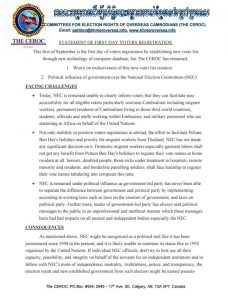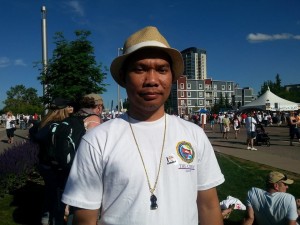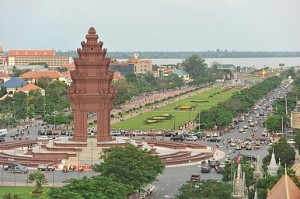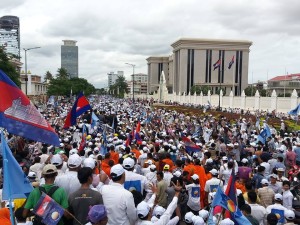Op-Ed: The CEROC
Political Paradigm of Pragmatism from the Khmer Youth part 75
This part (75) is broadcasted by CMN Radio on 28-29 July 2016, Mr. Sophan Seng articulated on Voters  Registration that is lacking inclusiveness. NEC have not solely decided to help facilitate those inside the country to access to vote registration comfortably, but Cambodians overseas migrant workers and those permanent is remained negligent. As a recommendation, Mr. Sophan suggested NEC to create “mobile team” to target those “special need group” voters such as those sicks in the hospitals, the very old seniors, remote citizens or minority, and soldiers who are stationing at the borderline etc. This mobile team can also register “Khmers overseas” to vote as well.
Registration that is lacking inclusiveness. NEC have not solely decided to help facilitate those inside the country to access to vote registration comfortably, but Cambodians overseas migrant workers and those permanent is remained negligent. As a recommendation, Mr. Sophan suggested NEC to create “mobile team” to target those “special need group” voters such as those sicks in the hospitals, the very old seniors, remote citizens or minority, and soldiers who are stationing at the borderline etc. This mobile team can also register “Khmers overseas” to vote as well.
What is very clear in argument is the new computer system doesn’t need voters to register at their own commune/sangkat offices because the system can allocate them to their commune/sangkat voting boots by referring to their permanent address. Migrant workers in both domestic and international, should be incentivized through this voting placement allocation mechanism.



 out inputs because they don’t have much inputs to be thrown. We must agree that through this 25 years, human resource has hugely built within the government (government here refers to pragmatic collective body being inclusive of public servants, civil society member activists, and members of opposition political parties etc.) By looking from outside political behaviour, CNRP might at least take model of British Westminster System to its leadership core as this style is not only practised in those commonwealth states but also most democratic states. By looking at their key policy stating that CNRP stands on national reconciliation and unity by eradicating colouring each other, discrimination and patronage system through ameliorating following 6 core principles as you can read them
out inputs because they don’t have much inputs to be thrown. We must agree that through this 25 years, human resource has hugely built within the government (government here refers to pragmatic collective body being inclusive of public servants, civil society member activists, and members of opposition political parties etc.) By looking from outside political behaviour, CNRP might at least take model of British Westminster System to its leadership core as this style is not only practised in those commonwealth states but also most democratic states. By looking at their key policy stating that CNRP stands on national reconciliation and unity by eradicating colouring each other, discrimination and patronage system through ameliorating following 6 core principles as you can read them